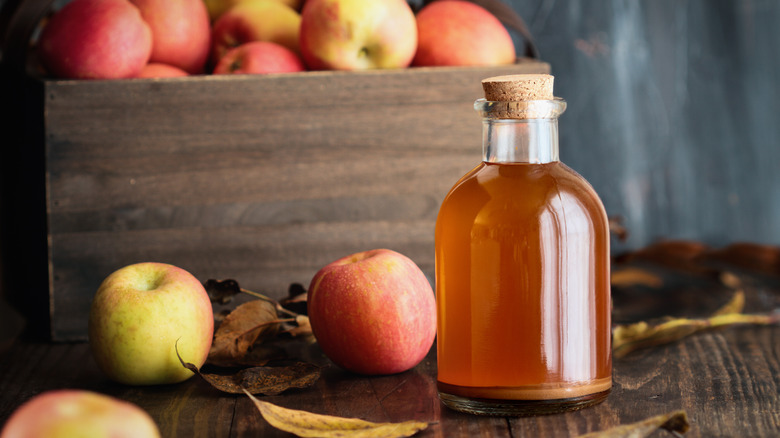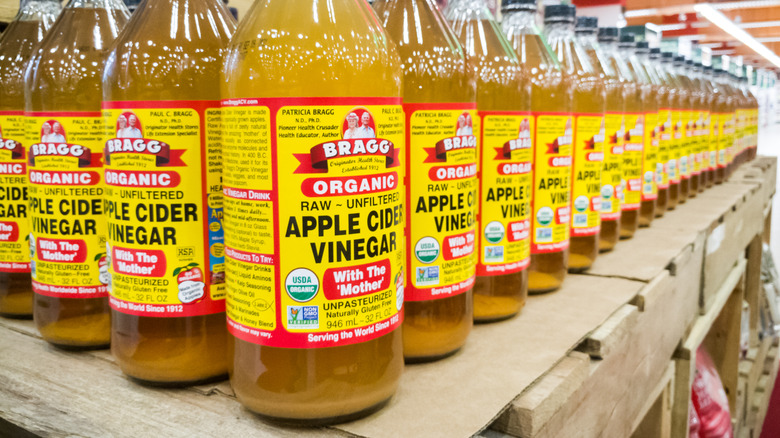How Long Apple Cider Vinegar Lasts And What To Look For When It Goes Bad
Apple cider vinegar, or ACV, is a versatile condiment that should be part of your standard pantry inventory. The bright, fruity acidity found in the bottle makes it a popular addition to a variety of recipes, including vinaigrettes, barbeque sauces, and quick pickles. ACV stands out compared to other vinegars because it's often bottled unpasteurized with particles of the active vinegar mother visible in the container, which makes the liquid look cloudy. This might make you think it's spoiled, but those floating strands are actually a natural component of the vinegar. However, if the bottle contains mold, it's time to throw it out.
The great news is that the shelf life of apple cider vinegar is quite long. This is thanks to its acidic nature, which acts as a natural preservative. Unopened bottles of apple cider vinegar can last for an extended period — often up to five years or more when stored under the proper conditions. However, the flavor and quality may start to diminish over time.
Once opened, the shelf life of apple cider vinegar is influenced by factors such as exposure to air, light, and temperature. In general, opened bottles of ACV remain at their best quality for about 2 years. While the vinegar doesn't necessarily spoil or become unsafe to consume, its flavor profile may change, and it might lose some of its potency.
Store your vinegar properly for the best flavor
Store apple cider vinegar in a cool, dark place away from direct sunlight, like your pantry or cupboard. Exposure to light can degrade the quality of the vinegar over time. Keep the bottle tightly closed to prevent exposure to air, which can lead to oxidation. Avoid storing it near the stove or other heat sources to avoid excess heat breaking down the flavor. If you see sediment settling in the bottom of the bottle or large strands floating in the liquid, don't worry — it's just part of the natural vinegar mother and doesn't indicate spoilage. You can mix it all back in by shaking the bottle or filter it out if you prefer.
Under the right conditions, vinegar might never spoil, but you may notice that older vinegar simply loses its acidic punch. If that happens, or if the vinegar develops an off-putting odor, an unusual color, or mold, those are indications that it's time to replace the bottle. Fresh vinegar is especially important when you're using it for the acid balance of a canning recipe, so be sure to always use a new bottle for preserved foods to ensure your food stays safe.

